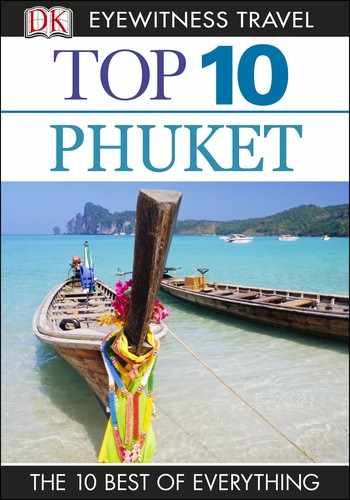Security and Health
1. Emergencies
In the event of an emergency, dial 191 for the police, or 1155 for the special tourist police. Both offer English-speaking operators. The island does not have an official ambulance service, so visitors who require immediate medical attention should take a taxi or private car to the hospital.
2. Police
If you require police assistance during your trip, call the Thai police on 191. Alternatively, a special branch of Tourist Police is available 24 hours a day, 7 days a week. These policemen are specially trained volunteers who speak many foreign languages.![]() www.phuket-tourist-police-volunteers.com
www.phuket-tourist-police-volunteers.com
3. Hospitals
Phuket International Hospital and Bangkok Phuket Hospital are two of the top-rated hospitals on Phuket and provide western-quality medical care. There are a number of smaller clinics on the island that can treat you for minor illnesses and injuries. Reliable medical care is not available on some smaller islands.
4. Pharmacies
Thailand’s pharmacies sell a wide range of prescription drugs, including many popular Western medicines. Buying drugs in Thailand often does not require a doctor’s prescription, so make sure you know the correct dosage before you begin taking a medicine. It is always a good idea to talk to your doctor before taking any medication.
5. Insurance
Buying insurance is a good idea to cover yourself for private health care, loss of belongings, and cancellations. Although medical care in Thailand is generally inexpensive, insurance gives you peace of mind for unexpectedly large claims. Remember to keep receipts and other documents to file with your insurer when you return home.
6. Red Flags
When you see red flags flying at the beach, it means you shouldn’t enter the water because of strong waves or undertow. These conditions occur most frequently during summer, but you should heed the warning throughout the year, even if other people are ignoring it. Most beaches do not have professional lifeguards.
7. Motorbikes
Thousands of motorbike accidents occur each year on Phuket, with many riders getting seriously injured. You should always insist that the rental company provide you with a properly fitting helmet. Always obey traffic laws and drive slowly since the margin for error on a motorbike is very thin.
8. Seasickness
If you experience seasickness, or motion sickness, avoid boat journeys altogether or buy an over-the-counter drug like Dramamine to help control it. You can also mitigate the effects of seasickness by standing on the highest level of the vessel, breathing in fresh air, and fixing your eyes on the horizon.
9. Sunburn
Sunburn is possible even on cloudy days. The hottest part of the day, from 11am to 2pm, presents the greatest chance for getting burned. Always make sure you wear sunscreen, and reapply it every few hours when you are outside. If you do get burned, you can buy aloe vera and other moisturizers to help alleviate the pain.
10. Liability
Unlike in most Western countries, the concept of liability is virtually non-existent in Thailand – if you get injured, there is very little you can do. For this reason, it is always a good idea to ask tour operators about their track record and safety precautions before participating in activities.
